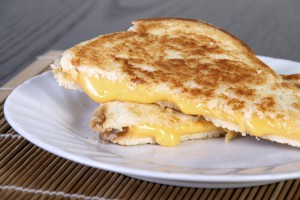The cheesy truth about decision making….
Posted: September 1, 2015 Written by: W.B. “Bud” Kirchner .
 I don’t watch TV (then again, with Roku, Hulu, Vudu, etc. on phones and tablets who does???) but I will watch a TED Talk when I have time.
I don’t watch TV (then again, with Roku, Hulu, Vudu, etc. on phones and tablets who does???) but I will watch a TED Talk when I have time.
Recently I watched neuroscientist Molly Crockett and her TED Talk, “Beware neuro-bunk.” At one point she reveals that research showed more people agree with findings of a scientific article that has a photo of a brain included than agree with the same unillustrated article. In her words: “Do you want to sell it? Put a brain on it. I guess we are guilty of that with our Business Brain Model”
With that in mind, we will have a photo of a brain with every article we post! (Slightly sarcastic, slightly true by default of our subject matter)
Her Ted Talk, which is well worth the 11 minutes 18 seconds it will take you to watch, is based around a recent study of hers and the accompanying earned media.
 Crockett’s study found that when tryptophan levels were low, people were more likely to take revenge when treated unfairly. However, the article headlines in legitimate media coverage about her study included “A cheese sandwich is all you need for strong decision-making,” “Official! Chocolate stops you being grumpy” and “The cheesy secret behind successful decision making.”
Crockett’s study found that when tryptophan levels were low, people were more likely to take revenge when treated unfairly. However, the article headlines in legitimate media coverage about her study included “A cheese sandwich is all you need for strong decision-making,” “Official! Chocolate stops you being grumpy” and “The cheesy secret behind successful decision making.”
All this made me think: Is it really wise for the media to upset a scientist that writes a research study about revenge? Probably not.
Anyway, I encourage you to think about what you click and why you click; what you read and why you read; plus what you think and why you think that. Remember – just because a brain is on it does not mean a brain is behind it.
About the Author: W.B. “Bud” Kirchner is a serial entrepreneur and philanthropist with more than 50 years of business success. He is not a scientist or an academic but he does have a diversified exposure to neuroscience, psychology and related areas. Generally speaking, the ideas he expresses here are business-angled expansions of other people’s ideas, so when possible, he will link to the original reference.
